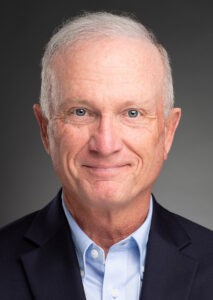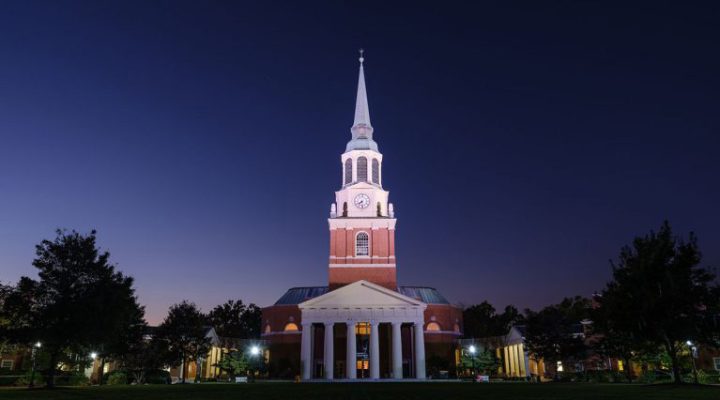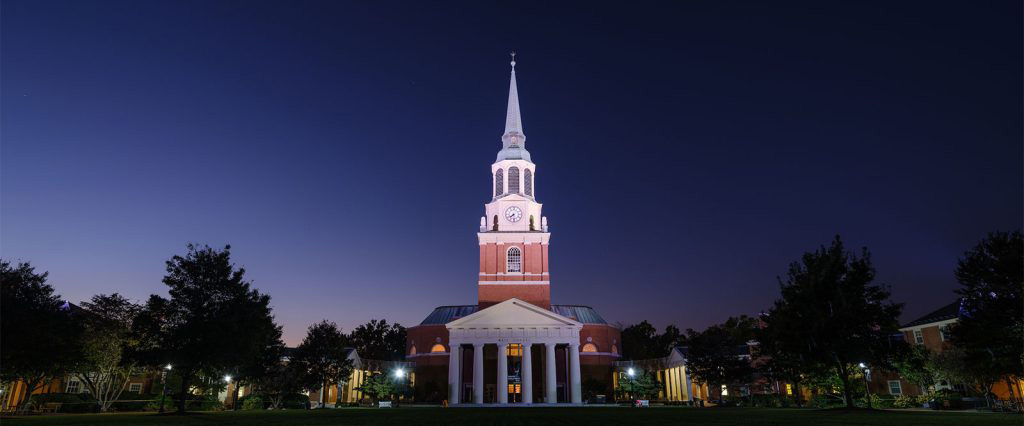I was saddened, but not surprised, at the announcement that the Wake Forest Baptist church, whose members met in Wait Chapel on the campus of Wake Forest University for 66 years, is dissolving.
I am sad because I’m a graduate of Wake Forest (class of 1983) and attended Wake Forest Baptist Church as a student. Full disclosure: The church paid Wake students to sing in the choir. I only had to attend choir practice on Wednesday nights and show up at 11 a.m. for the worship service to get paid. So, I suppose one might say I was more of a mercenary than missionary.

David Ramsey
Further disclosure: On some Sunday mornings, my joyful noise unto the Lord was accompanied by a horrible headache from the previous night’s joyful fraternity party. You see, I wasn’t your typical Baptist student at Wake. I wasn’t a member of the Baptist Student Union (I don’t even know where they met). I was, though, a member of a fraternity, where I served as rush chairman and president.
But it was at the Wake Forest Baptist Church where I developed a love for liturgical worship and what some call “high church music,” for example, Bach and Handel.
Speaking of “high church,” Jimmy Buffett performed in Wait Chapel my junior year. And guess what Parrot Heads do before, during and after his concerts? Spoiler alert: They don’t pray. I could only imagine the next morning when a parishioner saw an empty bottle underneath her seat, which reminds me of the maxim, “Wherever there are three or four Baptists, there’s usually a fifth.”
Prior to attending Wake Forest Baptist Church, I never had been in a liturgical worship service or observed the liturgical calendar. Advent? What the heck was that? Lent? Isn’t that in your dryer? Pentecost? Do you bring your own snakes? And why is the minister wearing a black robe?
Speaking of the minister, Warren Carr, a towering intellect, was the senior minister during my time there. He brought that intellect into the pulpit, challenging his congregation to think critically about matters of faith, justice and the world outside of Winston-Salem. He also was the first Baptist minister I encountered who didn’t extend an altar call after singing all 10 verses of “Just as I Am.”
Confession: Some of my buddies studied in Wingate Hall, where the religion department held classes and the religion professors had offices. Carr had an office in Wingate, and he often left his door unlocked. Some of us studied in his office. We would even have pizza delivered there while we studied. I often wondered if he knew. If he did, all he had to do was lock his door. Surely, he smelled our pizzas from the night before. Perhaps this was his simple extension of grace to us.
I’m also sad because the Wake Forest Baptist Church was a literal and figurative sanctuary for me. Wake Forest is an academically challenging university, which explains its nickname, “Work Forest.” The social and peer pressures that were omnipresent coupled with the scholastic rigor made Wake Forest a wonderful yet challenging place for adolescents morphing into young adulthood. I might have been hungover, but those Sunday mornings in Wait Chapel were a balm in Gilead, and antidote to the Budweiser(s) the night before. In that hour, I could forget about the upcoming exams and the pressures to conform. And Wait Chapel was no more than half a football field from my dorm room.
“While I’m saddened by the news of the church’s closing, I’m not surprised.”
While I’m saddened by the news of the church’s closing, I’m not surprised. Even back then, attendance was sparse. Few students attended. Some students probably didn’t even know a church met in Wait Chapel.
In 1998, a controversial vote (90-33) to allow its ministers to officiate at same-sex marriages fractured the already fragile congregation. A prominent and wealthy member, whose son was a fraternity brother, left the church. Others followed. Those who remained aged, and the church struggled to attract younger members. Giving also declined. It was not a matter of if Wake Forest Baptist Church would dissolve but when.
Wake Forest Baptist Church is a cautionary tale, a microcosm of a larger macro trend in American religious life. An Atlantic article in 2018 noted that 6,000 to 10,000 churches close every year in America, and that number has grown in the last few years. Although more than 70% of Americans still identify as Christian, church attendance is less central to faith than it once was. Most denominations are declining as a share of the overall population, and giving to congregations has been falling for decades. Meanwhile, religiously unaffiliated Americans, nicknamed the “nones,” are growing as a share of the U.S. population.
Just as the iconic and signature steeple above Wait Chapel is a symbol of Wake Forest’s religious history and heritage, Wake Forest Baptist church was a beacon to those whom society, and yes churches, had marginalized and kept away. And it was the perfect place for an 18year-old. who had been rocked in a Baptist cradle and baptized in that same Baptist church, to escape student life, to see another side of Baptist life and experience another style of Baptist worship, even if blurry eyed and slightly hungover.
David Ramsey was a Baptist minister for 10 years, serving as senior minister of two congregations in Virginia. He earned a bachelor’s degree from Wake Forest University and a master of divinity degree from Duke University Divinity School. He also was a fellow in religion and leadership development at Princeton Theological Seminary. He is currently a principal with the world’s largest on-line retail and cloud technology company and lives in Wolf Laurel, N.C. His book’s website is dbramsey.com.
Related article:
Progressive Baptist congregation on Wake Forest campus votes to close


